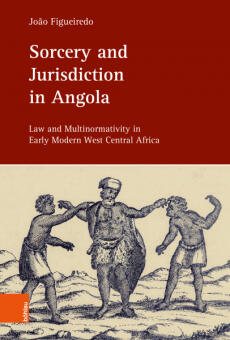New volume on sorcery and jurisdiction in Angola published

A new volume on sorcery and jurisdiction in early modern Angola has been published in the Käte Hamburger Kolleg series. João Figueiredo uses Angola as an example to examine the encounter between two normative worlds in West-Central Africa.
When the Portuguese arrived at the mouth of the Zaire River in 1483, two vibrant normative systems came into contact: on the European side, a jurisdictional system shaped by natural law concepts with universalist claims, but which fundamentally recognised local customs; on the African side, various normative systems designed to mediate between different corporate groups and protect against evils perceived as preternatural – phenomena that the Portuguese called feitiçaria or sorcery.
Figueiredo highlights the intensive cross-cultural translation of normative knowledge that followed this first encounter. He shows how a changing, shared understanding of sorcery emerged and how the limits and meanings of jurisdiction, law and slavery were continually renegotiated.
The series
The series “Einheit & Vielfalt im Recht | Legal Unity & Pluralism” is edited by Ulrike Ludwig and Peter Oestmann and is published by Böhlau Verlag. The series conceptualises legal pluralism as a structural characteristic of law itself. We can therefore speak of a relational and historically changeable association between unity and pluralism in law. The book series intends to comprehensively illuminate these connections in their cultural polymorphy interdisciplinarily, transspatially and interepochally. The volumes are published in German and English and are predominantly open-access.
Bibliographic data
João Figueiredo: Sorcery and Jurisdiction in Angola. Law and Multinormativity in Early Modern West Central Africa, 2025, 566 Seiten, gebunden (Einheit & Vielfalt im Recht / Legal Unity & Pluralism, Bd. 3), Böhlau, Druckausgabe: ISBN: 978-3-412-53313-7, Preis 95,00 EUR; E-Book: ISBN: 978-3-412-53314-4, Open-Access.

